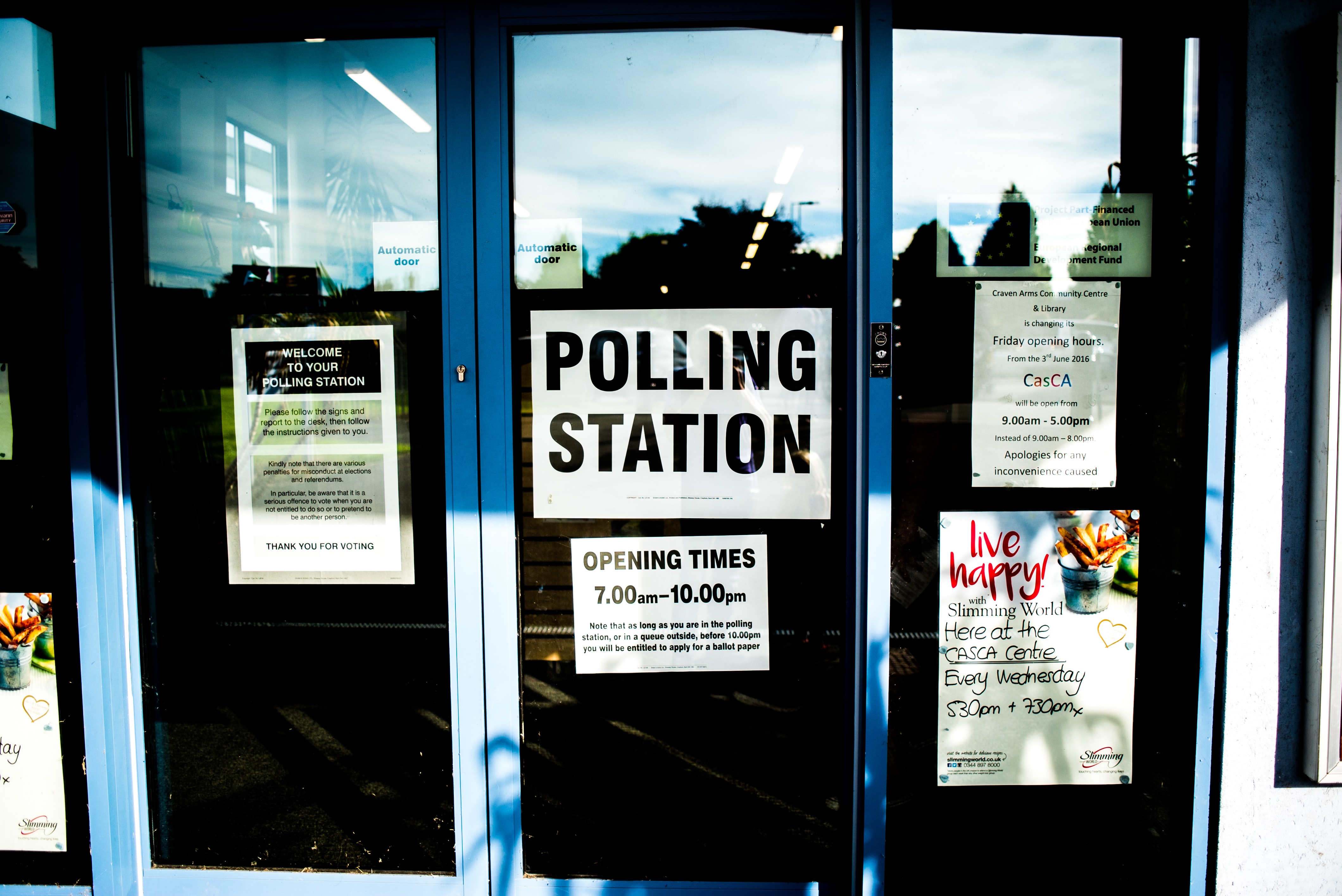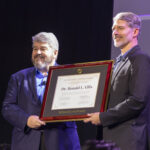
In an age of biased news and social media, information can be easily skewed to fit the narrative of whoever is speaking or writing. With the 2020 presidential election less than a month away, it is important to focus on the facts and learn how to analyze the influx of information.
With so much information available it is easy for mistakes to be made which can lead to misinformation.
Dr. Chase Porter, assistant professor of political science, said his best advice to combat misinformation is skepticism.
“Assume that every actor and institution in politics (media included) has a bias and an agenda and consume information accordingly,” Porter said. “Never assume that you are getting the full story, or even a correct partial story, from a source if you are depending on one source only. Make it a point to identify the ideological biases of the source that you are exploring and then attempt to find the ‘other side’ of the story from a different end of the ideological spectrum.”
Many news sites run fact-checking during and after election debates, big speeches,and even social media posts to help educate the public. Social media can often be the culprit of widespread misinformation.
“In my opinion, social media is a deeply unhelpful and corrosive influence for an informed political discourse,” Porter said. “Combatting misinformation requires careful and sustained reflection on a variety of perspectives, and social media rewards the antithesis of that. Unfortunately, the only antidote to misinformation is consuming a lot of information that often takes time and complex thinking to really process, none of which will get thousands of retweets.”
Companies such as Twitter are taking actions to prevent the spread of election misinformation by adding warning labels to misleading tweets posted by U.S. politicians and other high-profile users. Users will have to click past the warning label to view the tweet. This is also an effort to stop the spread of tweets containing harassment or election manipulation.
The company outlined new rules and limitations in a blog post on Oct. 9. The limitations also make it harder for the flagged tweets to be spread by blocking them through Twitter’s algorithm, meaning the tweets will not show up on timelines. The goal of this initiative is to make Twitter a source for reliable information.
“Social media helps and hurts, as it does with most things,” Mikayla Miller, senior business administration major. “It can be a great resource to get information out, but it can also be a way for people to be misled. There is less fact-checking on social media and the amount of information out there can be overwhelming especially now with COVID and the election. It’s important to take everything you see with a grain of salt.”
Miller said a way she combats election misinformation is by reading about issues from multiple sources and being openminded. She encourages readers to be willing to learn and grow in this season.
“It’s important we challenge our beliefs and not just listen to things that make us comfortable or fit with what we maybe grew up hearing,” Miller said. “Getting our news from one source or from people who maybe think just how we do shuts us off from self-exploration and the opportunity for our opinions to grow and fully develop.”
Porter’s rule of thumb is to avoid watching the news. He said he prefers to read the news and that it gives him more control over what he is consuming.
“This also gives me more control over choosing what to parse from the written narrative, allows me to quickly look for other viewpoints, and frees me from editorial decisions meant to engage television audiences,” Porter said. “Granted, all media involves editorial decisions, but at least in the written format, I feel more liberty to interpret the text for myself than I do in the televised format. So rather than recommending any one source or source for information, I recommend the practice of critical and informed media literacy.”
Brock Mickley, senior business administration major, said he encourages students to do their own fact-checking to ensure if what candidates say during debates, rallies or on social media is true.
“For me, fake news is definitely something that exists, the media does take the opportunity sometimes to twist quotes and spin the story towards their bias,” Mickley said. “However, I know there are good journalists and sources out there that do a great job of being objective and putting together good pieces. It’s our job to find those good sources and do our due diligence to know the truth.”
Mickley encourages the CBU community to prepare for the upcoming election by doing their own research.
“Know what and who you’re voting for,” Mickley said. “Know where funding is coming from, what the truth is, what your values are, and which candidate matches them the best. As much as our government may not be the best truth-tellers in the world, we have the power to make this country better, and it starts with us and our vote.”
Some steps students can take to avoid election misinformation is to not share articles or information that you have not read yourself. This helps minimize unreliable content. Students can also benefit from learning to spot misinformation patterns in the news and on social media. When combating election misinformation, skepticism is a helpful tool.things that make us comfortable or fit with what we maybe grew up hearing,” Miller said. “Getting our news from one source or from people who maybe think just how we do shuts us off from self-exploration and the opportunity for our opinions to grow and fully develop.”
Porter’s rule of thumb is to avoid watching the news. He prefers to read his news and said it gives him more control over what he is consuming.
“This also gives me more control over choosing what to parse from the written narrative, allows me to quickly look for other viewpoints, and frees me from editorial decisions meant to engage television audiences,” Porter said. “Granted, all media involves editorial decisions, but at least in the written format, I feel more liberty to interpret the text for myself than I do in the televised format. So rather than recommending any one source or source for information, I recommend the practice of critical and informed media literacy.”
Brock Mickley, senior business administration major, said he encourages students to do their own fact-checking to ensure if what candidates say during debates, rallies or on social media is true.
“For me, fake news is definitely something that exists, the media do take the opportunity sometimes to twist quotes and spin the story towards their bias,” Mickley said. “However, I know there are good journalists and sources out there that do a great job of being objective and putting together good pieces. It’s our job to find those good sources and do our due diligence to know the truth.”
Mickley encourages the CBU community to prepare for the upcoming election by doing their own research.
“Know what and who you’re voting for,” Mickley said. “Know where funding is coming from, what the truth is, what your values are, and which candidate matches them the best. As much as our government may not be the best truth-tellers in the world, we have the power to make this country better, and it starts with us and our vote.”
Some steps students can take to avoid election misinformation is to not share articles or information that you have not read yourself. This helps minimize unreliable content. Students can also benefit from learning to spot misinformation patterns in the news and on social media. When combating election misinformation, skepticism is a helpful tool.


